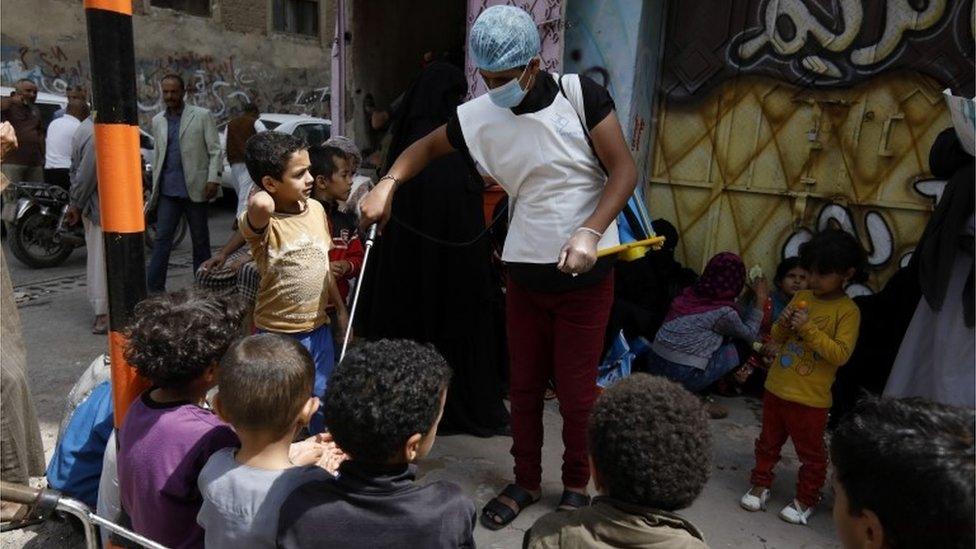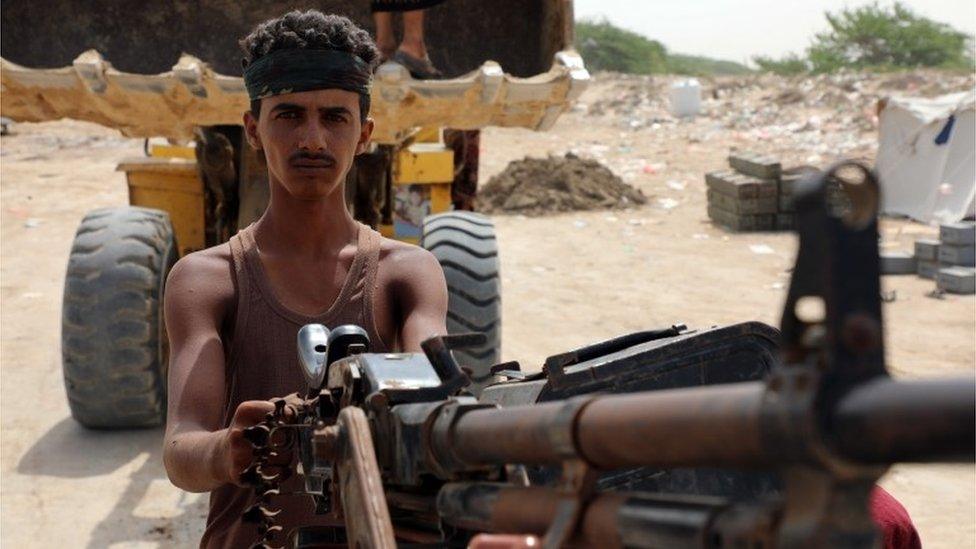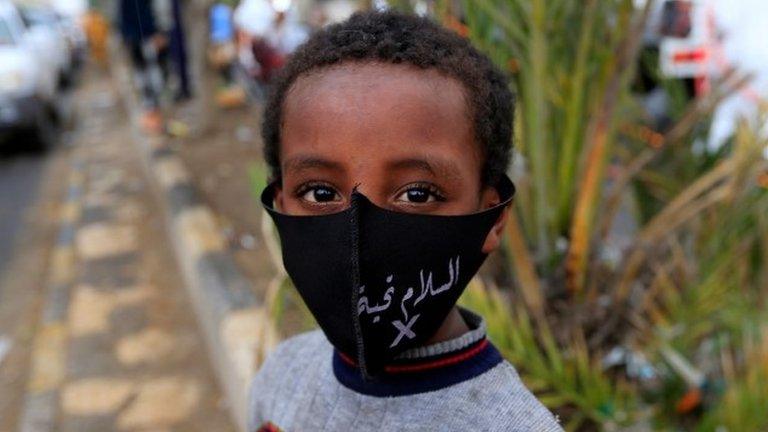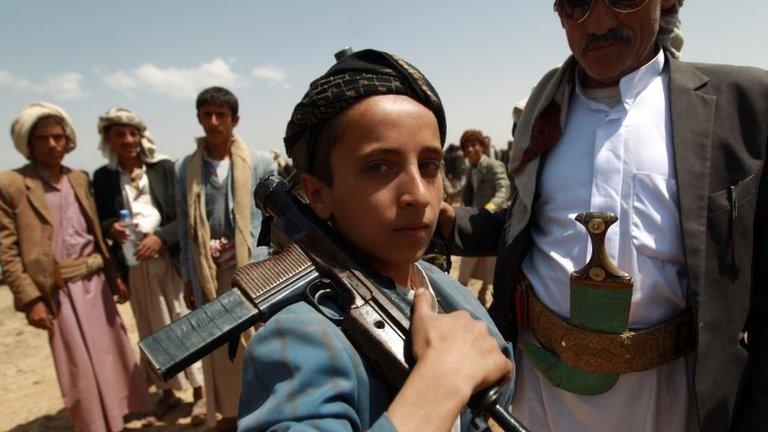Yemen conflict: Southern separatists give up on self-rule
- Published

Children are disinfected in Sanaa to combat coronavirus before receiving food rations
Separatists in southern Yemen have given up on the self-rule they declared in April.
The separatists, the Southern Transitional Council (STC), agreed the move in an accord with the internationally recognised government.
The accord gives the STC representation in a new Yemeni government to be formed within 30 days.
It could also heal a rift in the Saudi-led coalition backing the government against Houthi rebels in the north.
The accord builds on a ceasefire between the separatists and government signed in June.
The southern separatist issue has strained the Saudi-led anti-Houthi alliance. The STC is backed by the United Arab Emirates, which is also part of Saudi Arabia's coalition.
The United Nations has meanwhile warned that time is running out for any possible deal on ending the larger conflict between the Houthis and the Saudi-led coalition, which has left thousands dead and displaced millions. The UN has been trying to get the warring parties to start peace talks.
"There is a real risk that these negotiations will slip away," the Yemen envoy, Martin Griffiths, told the Security Council on Tuesday.
Severe food shortages caused by the conflict are worsening the impact of the coronavirus.
The Saudi-led coalition and the internationally-recognised government have been at war with the Houthis since 2014. Yemen's President Abedrabbo Mansour Hadi lives in exile in Riyadh.

The STC declared self-rule in April
The conflict within a conflict involving the United Arab Emirates-backed STC presented a further complication.
The STC and government forces have been at loggerheads in the port city of Aden and other southern regions. In June, the STC took control of an island known as the "Galapagos of the Indian Ocean" and famed for its striking flora and fauna.
The latest deal sees the STC, which took over Aden last August, and the government implement an accord first negotiated in November - the Riyadh Agreement.
(March 2020) The doctor on the front line after years of war in Yemen
The new government of technocrats will be split equally between the north and the south, and will include STC ministers, Saudi Arabia's SPA news agency reported. All military forces will be required to leave Aden.
President Hadi has also appointed a new governor for the city - the government's current seat of power. The capital, Sanaa, has long been occupied by the Houthis, who are linked to Iran.
Saudi Arabia described the latest deal as a positive step and an acceleration of the Riyadh Agreement which collapsed over the failure to agree representation in a new government.

Any agreement is good news for Yemen's long-suffering people. But there's scepticism too.
The warring sides in the south now have to prove they can and will move faster in the next 30 days - to form a new cabinet and forge a new calm - than they did in the months since the Riyadh Agreement was first signed under significant Saudi pressure in November.
It may be even harder now after all that transpired in recent months. But Saudi Arabia is desperate to find a way out of this quagmire - an even more difficult deal with the Houthis in the north is the priority.
UN envoy Martin Griffiths, who's been conducting endless rounds of face-to-face and virtual negotiations, warned this week of a "real risk that these negotiations will slip away". Yes, that means this colossal crisis could get worse - much worse. That should be the greatest pressure of all on Yemen's many leaders.
- Published21 June 2020

- Published14 April 2023
